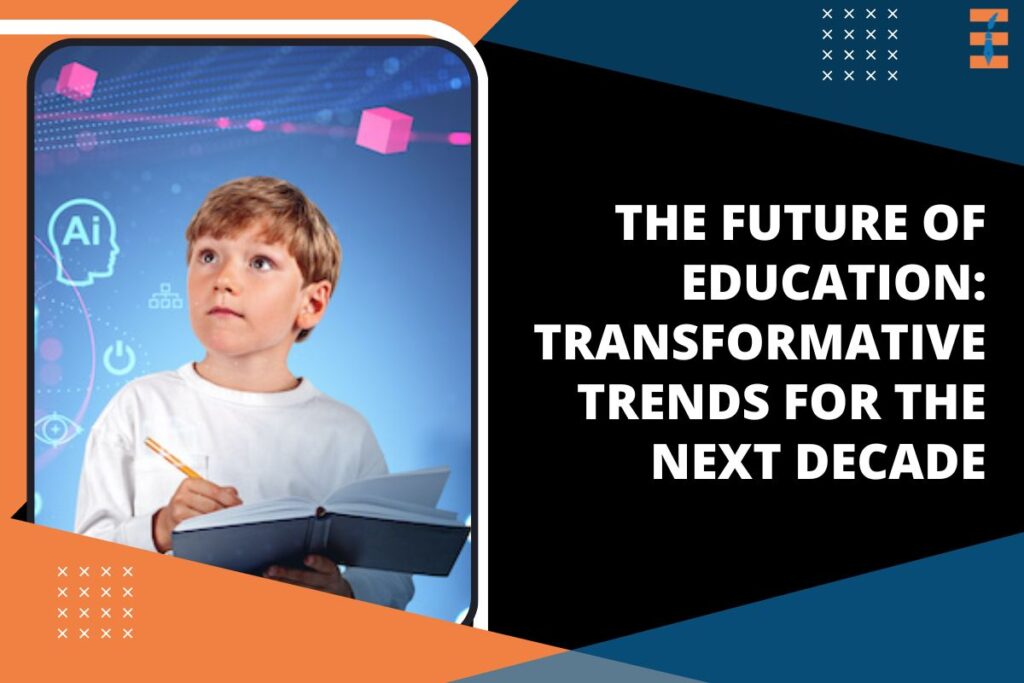Technology Transforming Education
The education sector is undergoing a rapid transformation, driven by technological advancements, ushering in a new era of Transforming Education. The traditional model, where individuals graduate and embark on a lifelong career, is becoming obsolete. Continuous learning, upskilling, and reskilling are now essential to stay relevant in today’s fast-paced world. Technologies like artificial intelligence (AI), online learning, virtual reality (VR), and augmented reality (AR) are revolutionizing how we learn, making education more accessible and personalized.
By 2035, the lines between the physical and digital worlds in education will blur significantly. While traditional brick-and-mortar schools will still exist, alternatives for those unable to attend in person will be well-established, catering to adults and lifelong learners. VR and AR technologies will become more affordable and accessible, allowing learners to interact with tutors and peers in immersive virtual classrooms. These technologies will enable sophisticated simulations, complex scientific experiments, and historical explorations, democratizing access to high-quality education for all.
However, this technological advancement brings challenges, such as increased social isolation and concerns about the impact of prolonged screen time on young minds. Educators will need to find a balance, ensuring that technology enhances learning without compromising students’ social and emotional development.
Transforming Education with Artificial Intelligence
Artificial intelligence is poised to revolutionize education, particularly through personalized learning. As the number of learners in traditional classrooms and online environments grows, AI tools will help teachers create customized curriculums tailored to individual students’ needs. These AI-driven platforms will evolve into flexible mentors, capable of understanding students’ psychological states and behavioral patterns to determine optimal teaching strategies.
AI will also provide emotional support and encouragement, using biometric data to help students recognize the best times to study and rest. Adaptive gamification will engage learners dynamically, potentially eliminating the stress of traditional exams by continuously assessing and challenging them throughout the education process.
While personalized learning promises better educational outcomes, it also raises significant challenges. Privacy concerns will need to be addressed, ensuring that sensitive student data is protected. Additionally, the role of human teachers will shift from information providers to learning facilitators, emphasizing the importance of human oversight and mentorship in the educational process. Bias in AI algorithms could lead to inaccurate assessments, highlighting the need for careful implementation and ongoing evaluation.
Neurotechnology and Lifelong Learning
Advancements in neurotechnology could further be transforming education by enhancing our understanding of the brain’s learning processes. Brain-computer interfaces (BCIs), like those developed by Neuralink, offer the potential to assist students with disabilities by enabling them to control devices with their thoughts. This technology could improve communication and participation in learning activities for these students.
In the next decade, BCIs might also accelerate learning by optimizing our ability to ingest, retain, and recall information. Researchers are exploring ways to use electrical feedback from the brain to enhance learning efficiency, potentially helping individuals develop new skills more quickly. However, the widespread adoption of this technology will depend on ongoing research and societal acceptance of its ethical and security implications.
The concept of a “job for life” is becoming outdated, necessitating a shift towards lifelong learning. As digital transformation accelerates, individuals will need to continuously adapt and acquire new skills to remain competitive in the job market. Education systems will evolve to support this, offering more courses focused on on-the-job training and upskilling opportunities.
Big companies like Amazon are already offering degree-level apprenticeship programs, and this trend is expected to grow. Online learning, modular learning, and immersive virtual learning will become more prevalent, delivering education in bite-sized chunks to meet the changing needs of industries and professions. Subscription services for education will allow individuals to engage in learning as needed, with a focus on human-centric “soft” skills that complement the technical capabilities of AI and automation.
In conclusion, the next decade will bring significant changes to education, driven by technological advancements and the need for continuous learning. By embracing these trends, we can prepare for a future where education is more accessible, personalized, and aligned with the demands of an ever-evolving world.

